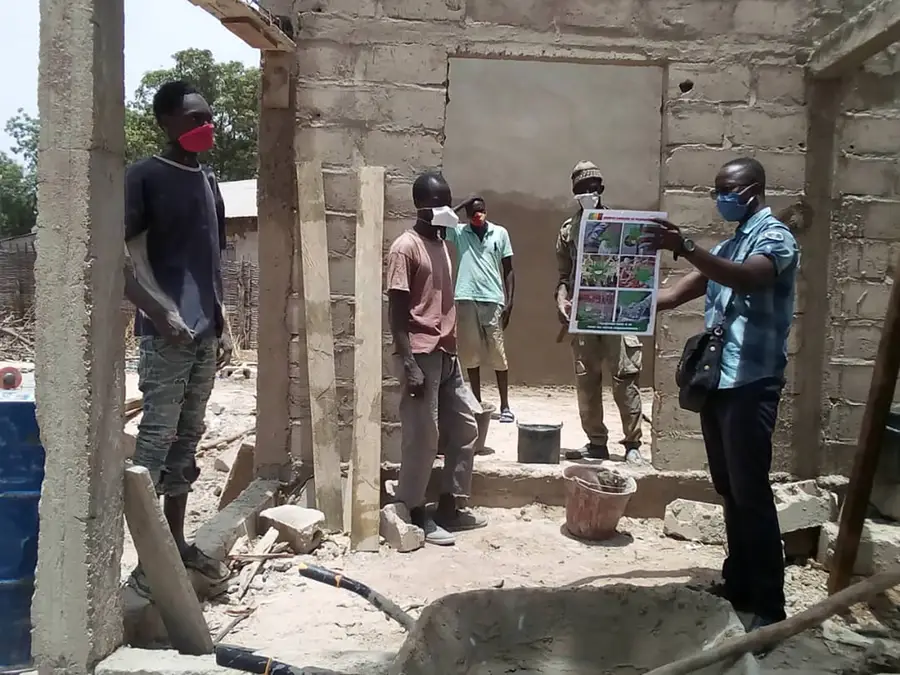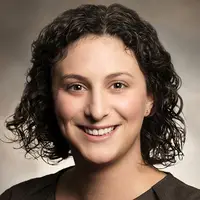
This post was originally published on the Learning Lab Blog.
COVID-19 may dampen in-person interactions, but in Senegal, the USAID/Governance for Local Development (GoLD) Activity demonstrates that effective collaboration is possible. GoLD is leading a major coordination effort among 17 multi-sectoral projects in Senegal, helping to deliver results despite substantial operational challenges surrounding the COVID-19 pandemic. In early April, Jean-Michel Dufils, GoLD’s Chief of Party (COP), started the process to bring together 15 COPs, representing a variety of sectors (e.g., health and education), to share information on their responses to the pandemic. In the first virtual meeting, they learned about how their fellow projects are adapting their management and redirecting resources for COVID-19-related activities.
GoLD proposed a new kind of multi-project collaboration model to strategically share ideas and resources and boost the impact of interventions. Projects identified four areas with overlapping activities, ripe for collaboration and opportunities to leverage other projects’ efforts—communication, products and the role of private sector, social inclusion, and capacity. The group formed four committees, each facilitated by a different project, while GoLD provides overall organization, management, and coordination, including maintaining the WhatsApp group and newsletter. The success of this coordination and collaboration is both an attribute to RTI’s ability to adapt to the current situation as well as USAID/Senegal’s Democracy, Rights, Governance and Peace (DRGP) Office’s technical oversight and management.
Within weeks of formation, committees are already achieving impressive results.
- Communication: Awareness-raising is a part of each project’s agenda. The committee leveraged GoLD’s existing national network of community radio stations to reach more people, with GoLD providing equipment to every radio station and the other projects financing the broadcasts. The group has conducted over 3,500 official Ministry of Health public service announcements broadcast in local languages in 77 communes.
- Products and private sector: The products needed for the COVID-19 response are not lacking; many donors are sending products, such as masks. But the ministries and local governments lack sufficient storage. The committee is conducting an inventory of storage capacity and arranging logistics to ensure products are stored correctly and sent where they are needed. Additionally, efforts are needed to mitigate the economic harm faced by small private businesses. Many large companies in Senegal practice corporate social responsibility and want to provide resources but are not connected to needs in the field. The committee facilitated connections with 52 companies across diverse sectors such as mining, insurance, and communication.
- Capacity: The committee identified opportunities for pooling resources to increase efficiencies in helping local governments or regional committees plan, monitor, and increase the effectiveness of their COVID-19 response. The committee designed a training on preventive and hygienic measures authorities should take to strengthen their pandemic response. The training was delivered remotely via GoLD’s E-learning platform to 80 field agents, who will in turn support local governments and civil society organizations.
Enthusiasm for this collaborative group is overwhelming. As many activities struggle to adapt their work plans under the state of emergency decreed by President Sall, GoLD and the USAID DRGP Team have galvanized key stakeholders to immediately help prevent the spread of COVID-19 and promote socioeconomic stability. By positively exploiting the trust and networks shared by USAID’s implementing partners, key messaging about social distancing, curtailing economic activities, and improving personal hygiene have penetrated hard-to-reach communities.
Several key lessons from this experience:
- COVID-19 is a health issue, but the response needs to be cross-sectoral. Collaboration and synergies across sectors are essential to optimize efficiency and increase impact.
- Through a strong team spirit, this group allows everyone to work together to boost collective efforts, rather than focusing on individual results of different organizations. In collaboration with USAID, these COPs and staff are successfully adapting their activities to respond to USAID’s redirection exercise.
- The group is structured while also maintaining flexibility to boost its effectiveness. It is important to focus on concrete operations and swift decisions, while embracing adaptive management and responding to changing contexts and new information.
- Collaboration systems and processes can be applied after the pandemic is over.
- Upper-level USAID engagement is fundamental.

